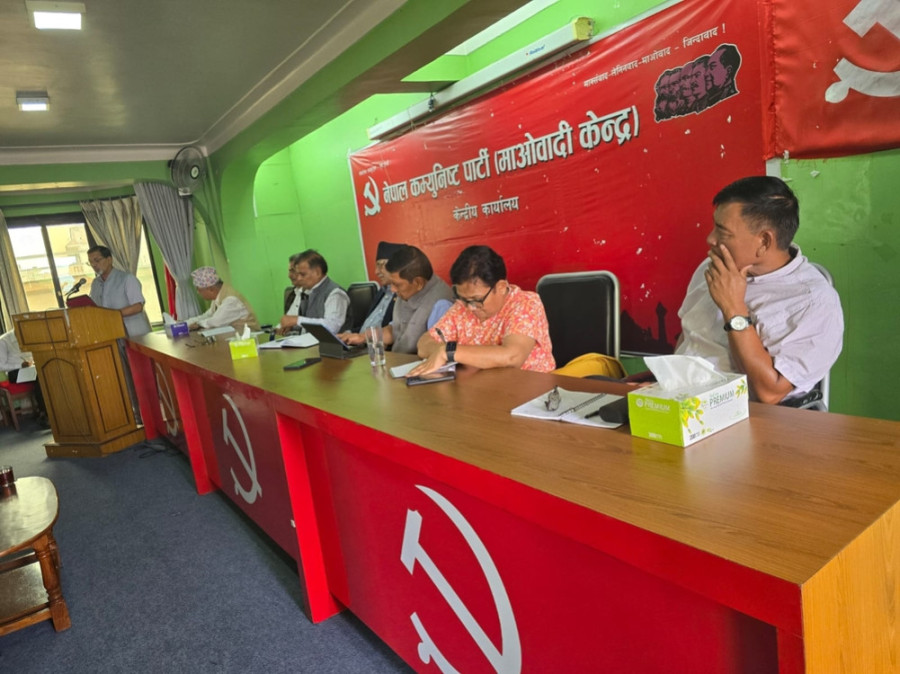National
Sharma demands Dahal take responsibility for Maoist Centre’s failures before offering self-criticism
Despite support to Dahal, some voices within the committee have called for introspection within the leadership itself.
Post Report
Amid growing intra-party feud in the CPN (Maoist Centre), Deputy General Secretary Janardan Sharma has said he is ready to undergo self-criticism—only if party chairman Pushpa Kamal Dahal first takes responsibility for what Sharma claims is the systematic dismantling of party procedures and norms.
Speaking at the party’s Standing Committee on Saturday, Sharma accused Dahal of running the party in an autocratic way and initiating factionalism that has weakened internal unity.
“Chairman Prachanda [Dahal] has acted arbitrarily with the party’s procedures. He must take responsibility,” a standing committee member quoted Sharma as saying at the meeting. “Only after he does so will I accept my own mistakes and offer self-criticism.”
Sharma further alleged that the factional strife originates from Dahal himself, claiming that the chairman encouraged internal divisions, which led Sharma to distance himself from the party. “The groupism began with chairman Prachanda. That’s when I began stepping away from the party,” he said.
Sharma’s comments follow intense criticism from more than two dozen standing committee members over his recent public remarks against Dahal’s leadership.
During the ongoing party meeting, many leaders expressed concern that Sharma had breached party discipline by airing internal matters publicly. They urged Sharma to admit fault and undergo “self-criticism,” a common disciplinary step in communist parties before formal action is considered.
“While we expected some to push for disciplinary action, the focus has largely remained on encouraging Sharma to reflect and retract his statements,” said one standing committee member.
Party deputy general secretary Haribol Gajurel also stated that the leadership wants to maintain discipline while avoiding punitive measures.
Despite the overwhelming support for Dahal, some voices within the committee have called for introspection within the leadership itself. Secretary Ram Karki advocated for internal democracy, criticising the concentration of power and proposing a rotational leadership model to revitalise the party.
“The centralised style of leadership must end if the party is to transform meaningfully,” Karki said.
However, Sharma defended his statements, asserting that his recent controversial remarks about communist prime ministers being involved in corruption were directed only at leaders from the UML, not Dahal. Even so, Dahal’s supporters maintain that Sharma’s tone and timing undermined party unity at a critical moment.
The party’s ongoing standing committee meeting, which began on Friday, has largely centred around the Sharma-Dahal conflict. While Dahal tabled 10 key agendas—including organisational reform, unity with other leftist forces, and leadership renewal—the feud has overshadowed broader discussions.
According to party spokesperson Agni Sapkota, the meeting reiterated a commitment to unity, internal reform, and the strengthening of party discipline. “All issues were thoroughly discussed. The party will not split under any circumstances,” he said.
While no disciplinary action has yet been taken, the Maoist Centre faces a critical test of its internal unity. With Sharma demanding accountability at the top before offering an apology, the path forward may depend on whether Dahal is willing to engage in reciprocal reflection or continue asserting his dominance within the party.




 14.12°C Kathmandu
14.12°C Kathmandu













